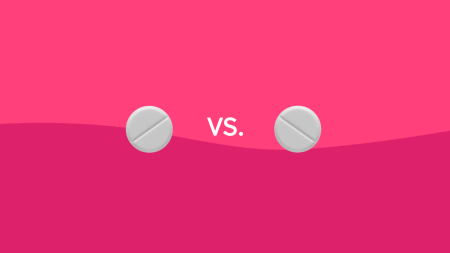How To Suppress Appetite: 21 Ways | Holland & Barrett
Hunger is important as it’s our body’s way of communicating that it needs food for fuel, but sometimes our hunger can feel excessive.
This can lead to snacking between meals and increasing your portion sizes.
If this is down to increasing your exercise, it’s likely that this is a natural reaction, but if not, you may want to try and reduce your appetite slightly.
Thankfully, there are natural and healthy ways you can do this! Discover 21 of them all backed by scientific research in our guide below.
In this article, you’ll learn about
- What can affect your appetite
- 21 ways that can suppress appetite
- How do I suppress my appetite to lose weight?
- How can I suppress my appetite without eating?
- How can I train myself to eat less?
- Can you shrink your appetite?
What affects your appetite?
Before we dive into how to reduce appetite, it’s important to highlight the factors that can affect it.
These include:
- Diet
- Mental health
- Pregnancy
- Certain medication
- Menstrual cycle
- Exercise
21 ways to suppress your appetite in a healthy way
Read on for our top 21 ways to suppress your appetite in a healthy way.
Up your protein intake
There are a number of different reasons why protein can help to reduce your appetite.
Firstly, this is because it helps you to feel full, thanks to the release of GLP-1 and PYY hormones when it is consumed.1
As well as this, some studies have highlighted the link between consuming protein early in the day and decreased hunger afterwards.2
Our expert nutritionist weighs in on eating protein with snacks and meals
“This blunts the blood sugar response from carb-based foods, further promoting more stable blood sugar levels and keeping appetite at bay.
It also balances the levels of various hormones linked to appetite regulation.”
Ensure you’re eating enough healthy fats
We’re not talking about saturated fats here, but unsaturated fats from foods like avocados, nuts and olives may be able to curb your appetite.
One study found that this happens because consuming these fats triggers the production of the compound oleoylethanolamide (OEA).3
In addition to this, consuming healthier fats from avocados, for example, provide more nutrients than say butter, as they also contain protein and fibre which are both said to help with an appetite as well.
Eat plenty of fibre
As we have just mentioned, eating fibre may also help you to reduce your appetite.
Various studies have found that soluble fibre, in particular, could help to reduce the level of ghrelin (the hunger hormone) produced by your body.
But it doesn’t end there.
As well as reducing your hunger hormone, soluble fibre has been found to increase the level of the fullness hormones, cholecystokinin, GLP-1 and peptide YY.
And lastly, soluble fibre may be able to reduce your appetite as it moves slowly through your digestive system.
When these nutrients are released at a slower rate through the gut, it also means your body releases insulin at a slower rate which has been highlighted as a potential way for your body to feel less hungry.
Stay hydrated
Important for a vast range of different health reasons, it goes without saying that you should be trying to stay hydrated as much as possible anyway.
But it can also help to decrease your hunger levels before meals, increase your feelings of fullness after meals and therefore support weight loss efforts.
Specifically, though, one study found that participants that drank two glasses of water before their meal ate 22% less food than those who didn’t drink any water.
This is likely due to how water stretches the stomach and therefore sends fullness cues to your brain.
Our expert nutritionist has some tips on understanding your hydration levels
“Use the colour of your urine as a key indicator for your hydration levels. Drink enough fluids to keep your urine no darker than a pale straw colour.
Be selective over the types of drinks you consume - avoid sugary drinks as these disrupt blood sugar balance, and moderate caffeinated drinks as caffeine in larger levels has a diuretic effect.”
Exercise before mealtimes
Ever been on a run before a meal and found that you weren’t hungry afterwards?
There’s a scientific explanation for this.
It could be the result of reduced hunger hormone levels as well as increased fullness, or because it reduced the activation of the area of the brain that causes cravings.
Eat dark chocolate instead of milk chocolate
If you have a sweet tooth, you may enjoy having a milk chocolate bar every now and then as a treat.
But for that same feeling and more nutritional benefits, try swapping it for dark chocolate instead.
Although dark chocolate can sometimes taste bitter, it is this bitterness that has been linked to reduced cravings for sugary snacks and even decreased appetite.
Furthermore, one particular study found that people who ate dark chocolate before a meal instead of milk chocolate ate less of the meal on average.
Reduce your stress levels
We all know that stress isn’t good for us, so attempting to reduce your stress levels can only be a good thing.
But did you know that it may help to reduce your appetite too?
Scientific research shows that high-stress levels are linked to an increased appetite, binge eating and craving non-nutritious foods.
In addition to this, stress may also lower the levels of our fullness hormones too, meaning we could eat more of these unhealthy foods than normal when we’re stressed.
Choose solid foods instead of liquid snacks
When we’re hungry or craving something sweet, it can be easy to reach for a sugary drink to keep you going.
But this isn’t recommended if you’re trying to reduce your appetite.
A recent scientific review highlighted how participants that had a liquid snack were 62% more likely to eat more at their next meal.
A reason for this could be down to the motion of chewing, which may give our bodies more time to send fullness cues to our brain than quickly consuming liquids.
Try drinking coffee
If you’re a fan of coffee, you’ll be pleased about this one.
While too much coffee isn’t great for our health, studies have shown that drinking coffee increases the release of the fullness hormone, peptide YY.
Don’t get along well with caffeine?
Research actually found that decaffeinated coffee was the most effective at reducing hunger, as the effects were found to last three hours after it was consumed
Practice mindful eating
Mindful eating means eating slowly and without distraction.
Paying close attention to the textures, flavours and aromas of your food allows you to focus on the quality of your food, instead of only the quantity, which may help to reduce the risk of binge eating.
Eat some ginger
Ginger has a whole host of nutritional benefits, from easing inflammation to helping with nausea. But that’s not all.
Ginger may also be effective at reducing appetite, as one study showed that people who took two grams of ginger powder in hot water before eating a meal, diminished the level of hunger that they felt afterwards.
Add peppers to your meals
Another one of the best appetite suppressing foods are peppers.
Specifically, it is the capsaicin that’s found in peppers that are the most important element for this.
Scientific research has found that these compounds could increase feelings of fullness and decrease feelings of hunger.
Try using smaller plates
While you may think that dinnerware is purely practical, it may be more important than that.
In particular, the size of your plates. Using smaller sized plates may help you subconsciously eat less than you would with a larger plate.
Use bigger cutlery
In a similar vein, the cutlery you’re using may also be impacting how much you’re eating.
Studies have shown that using a bigger fork to eat your food means that you eat less than you would with a smaller fork, as this affects how much food you feel you have eaten.
Although the same psychology does not apply when using larger serving spoons.
Lose belly fat
The body fat around your middle may also have an impact on your appetite.
This is largely because the specific fat around your organs has been linked with an increased production of Neuropeptide Y, a hormone that has been found to increase appetite and calories stored as fat.
Make sure to get good quality sleep
Another natural way to suppress your appetite is to ensure you’re getting enough sleep.
Various studies have highlighted how this can have an effect on appetite, as not enough sleep could increase hunger levels up to 24%, alongside lowering the fullness hormone by up to 26%.
But it doesn’t end there.
More studies have shown that people who sleep for under seven hours each night have 26% lower fullness levels after they’ve had breakfast than those who have had over seven hours.
Incorporate omega-3 fats into your diet
Omega-3 fats offer a range of different health benefits, but they have also been shown to up leptin levels (the hunger hormone).
As well as reducing the hunger hormone, they’re also said to increase fullness levels after eating a meal when on a calorie-restricted diet
Visualise yourself eating the food you’re craving
Another psychological trick to reduce food cravings is to visualise the food you want to eat.
While this might sound a bit out there, research shows that doing this may be able to reduce the amount of that food that you’re visualising eating afterwards
Drink more green tea
Much like drinking coffee has this effect, green tea is another potential natural appetite suppressant thanks to the catechins and caffeine that it contains.
Specifically, though, green tea has only been shown to have this impact when consumed with other ingredients.
Try volume eating vegetables
And lastly, another way to suppress your appetite through your diet is to start volume eating low-calorie vegetables.
These include leafy green vegetables, cruciferous vegetables, and berries.
Pay attention to carbs
It’s important to get enough carbs to give your body energy to function, but it’s also equally important to look at the type eaten.
Our expert nutritionist highlights
“The glycaemic index (GI) rating of carbs is key. GI is a scale from 0-100.
The higher the GI rating, the quicker the energy is released from the carbs in the food, and the quicker someone will feel hungry again afterwards.
In contrast, low GI carbs give slower burn energy, promote stable blood sugar levels and therefore help to curb appetite.”
When to speak to a doctor about your appetite
If you’ve tried a variety of these ways to lower your appetite and you’re still feeling excessively hungry for a large chunk of the day.
It may be worth speaking to your GP for more personalised health advice as there could be a medical reason for your hunger.
The final say
While these are all-natural ways to reduce your appetite, it is important to not completely ignore your hunger cues as they tell you when you need to refuel.
Our tips are intended to help with snacking between meals and to reduce portion sizes slightly, and should not be used in extreme ways.








